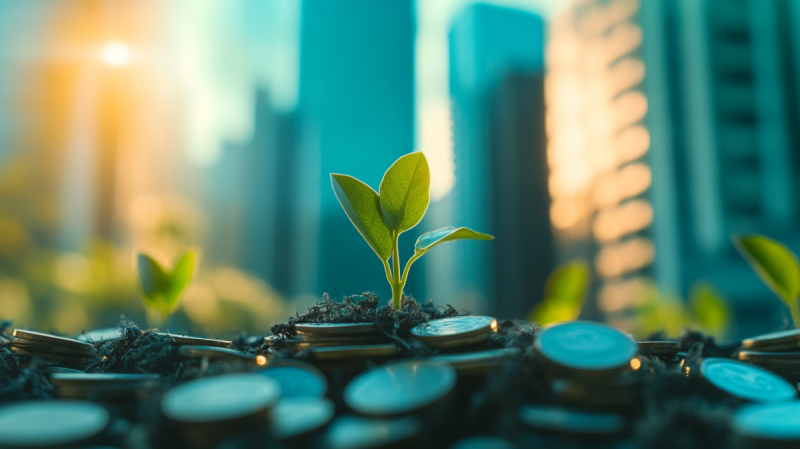While the IMF remains optimistic about global growth in 2025, the OECD is concerned about corporate investment trends. Investment, the engine of the economy, is stalling for a number of reasons.
The IMF has raised its global growth forecast for 2025 from 2.8% to 3% compared with April. Tariffs announced are lower than expected on “Liberation Day,” the weak dollar is supporting emerging economies, and major economies such as China and Germany are undertaking fiscal stimulus measures.
However, when viewed in context, this growth remains modest: 3% in 2025 compared to 3.3% in 2024, and well below the pre-pandemic average of 3.7%.
According to OECD chief economist Alvaro Pereira, the main obstacle is a lack of business investment. In his view, if spending does not increase, countries “will not be able to sustain growth.”
Before 2008, net investment in developed countries reached 2.5% of GDP; today it stands at just 1.6%. If the 2002-2007 trend had continued, current levels would be 20% higher.
Why investment is crucial
While economists often disagree on their view of the world and the ideal economic model, investment is always at the heart of theories of economic growth.
It works like a virtuous circle: investment stimulates growth, which in turn encourages investment.
Whether it is a question of increasing capital stock—equipment, infrastructure, etc.—or investing in new technologies, the goal remains to increase production and productivity. In an economy where competition reigns supreme and competitive advantage is king, constant innovation is the only way to ensure future profitability. This is especially true given that capital inevitably loses its competitive edge over time.
Political uncertainty: a major obstacle
For Alvaro Pereira, political instability is the main obstacle. Since the financial crisis, there has been a succession of economic and political turmoil. According to the OECD, a one-standard deviation increase in economic policy uncertainty reduces investment growth by one percentage point in the following year. In other words, there is a direct link between increased economic and political uncertainty and business investment.
In a world where the rules are constantly changing, nobody can play the game.
Planning an investment requires estimating its profitability, but in a context where prices, supply chains, and trade rules are constantly changing, companies hesitate… and postpone. This uncertainty also increases the cost of capital, as lenders demand a higher risk premium, which reduces expected profitability and sometimes eliminates it altogether… which destroys investment.
With the exception of the huge sums being poured into artificial intelligence, most sectors are cutting back on investment. Only Israel and Portugal are spending more than before the financial crisis, and just 6 out of 34 countries are investing more than before the pandemic.
The temptation of dividends
The use of surplus cash also comes with its share of responsibilities. At the end of the year, a listed company must decide between rewarding its shareholders or financing new projects. In principle, a company with growth levers should exploit them by investing in order to sustain its business. Burning cash while competitors invest means running the risk of quickly falling behind.
But it turns out that investors particularly appreciate dividends.
The trend is clear: between 1999 and 2019, total distributions by companies in the S&P 1500 (the 1,500 largest US companies) increased threefold, while their operating profits grew by “only” 162%. Reducing a dividend sends the wrong signal to the market. Some companies even prefer to pay out more than they have earned to avoid damaging their reputation.
In some sectors, such as oil, shareholder remuneration regularly takes precedence over investment. Arbitrage in cash management is one of the factors that has limited investment in recent years.
